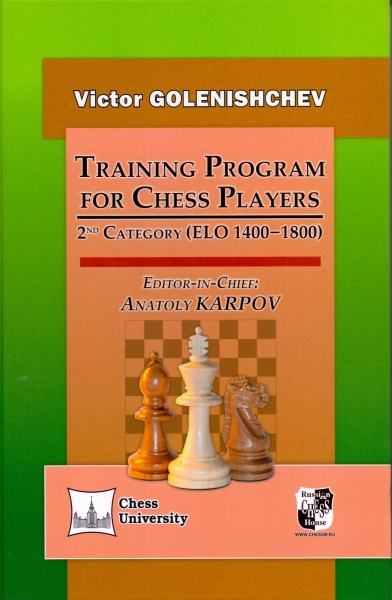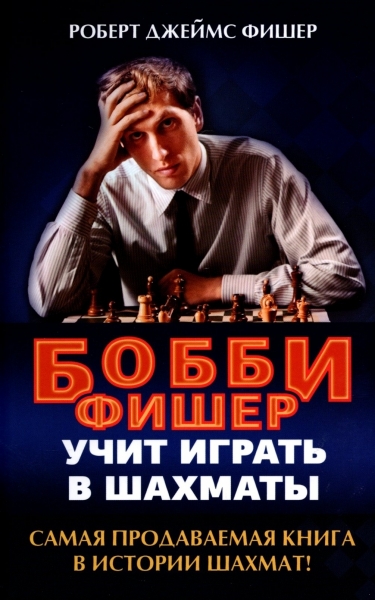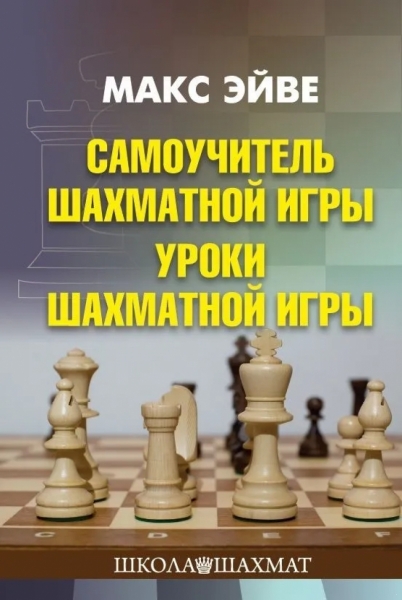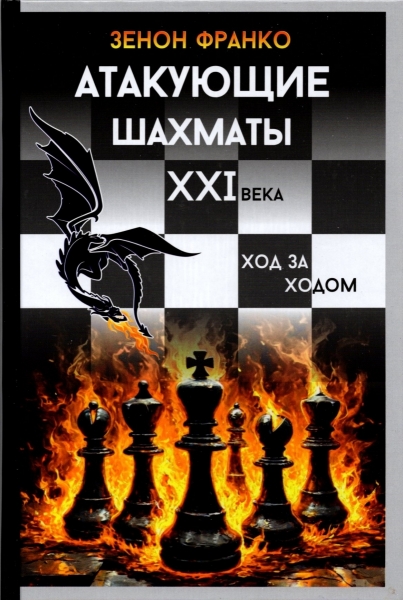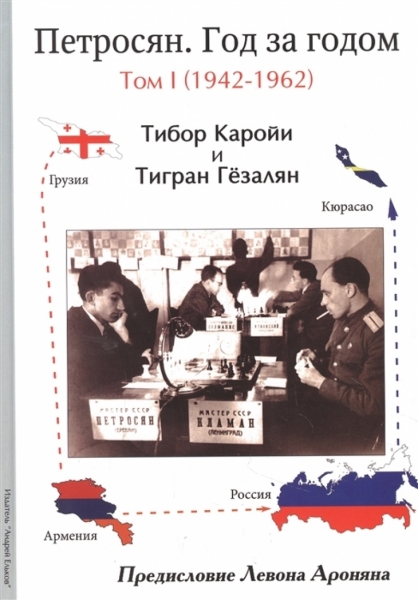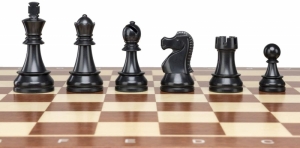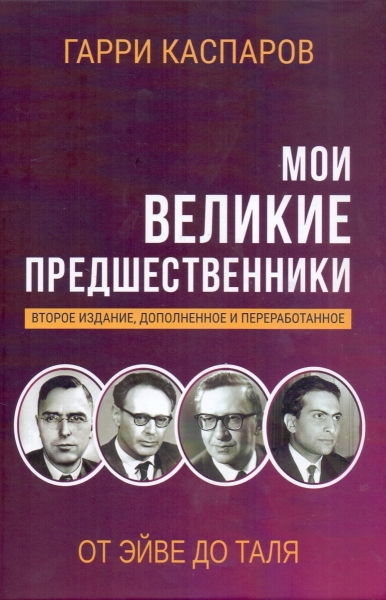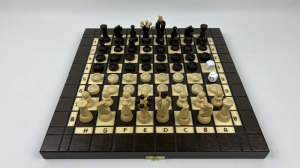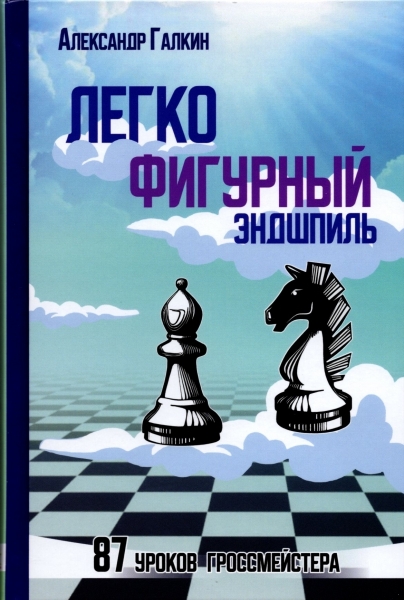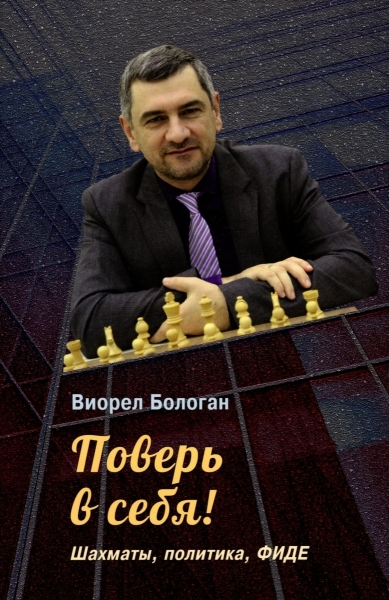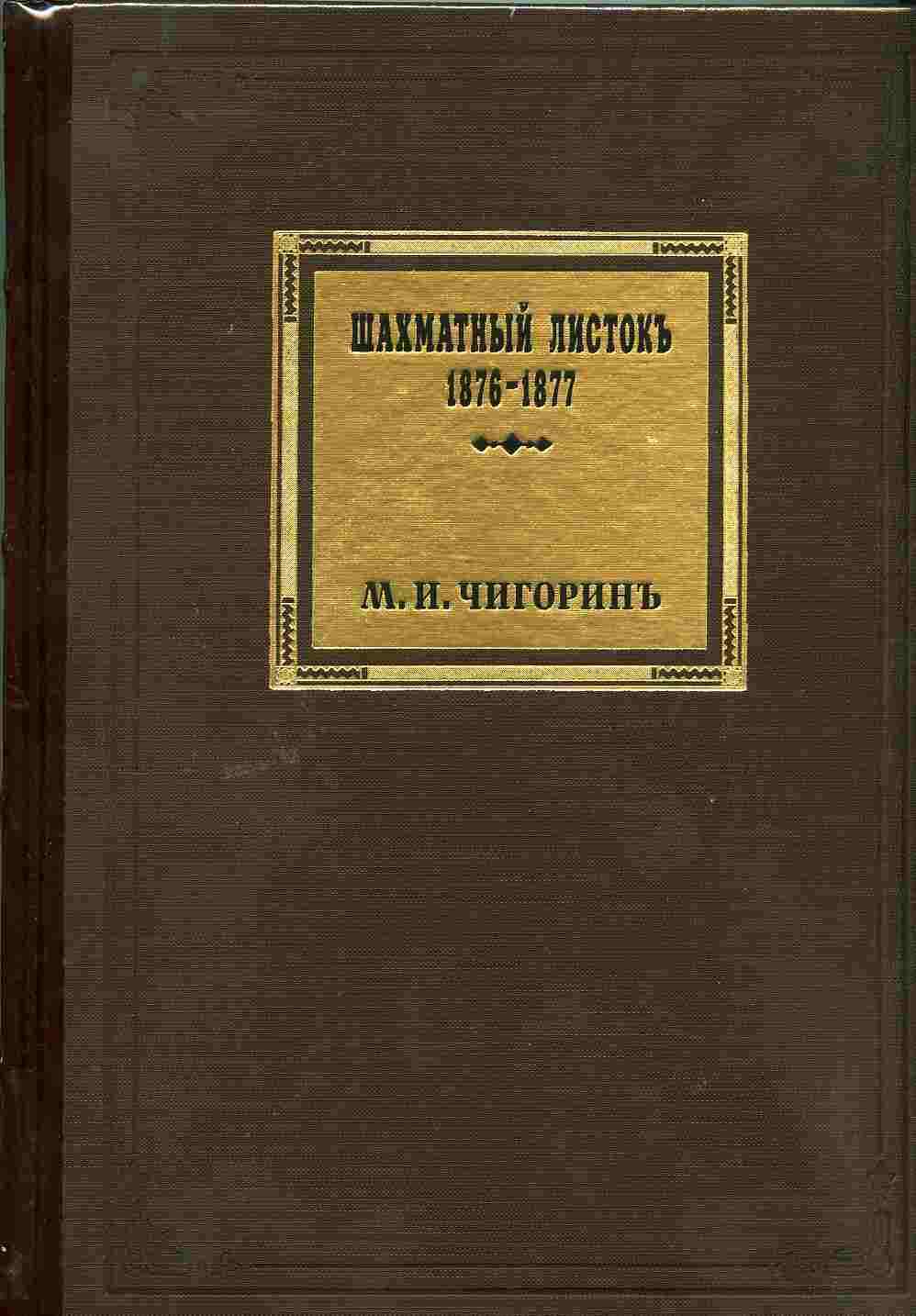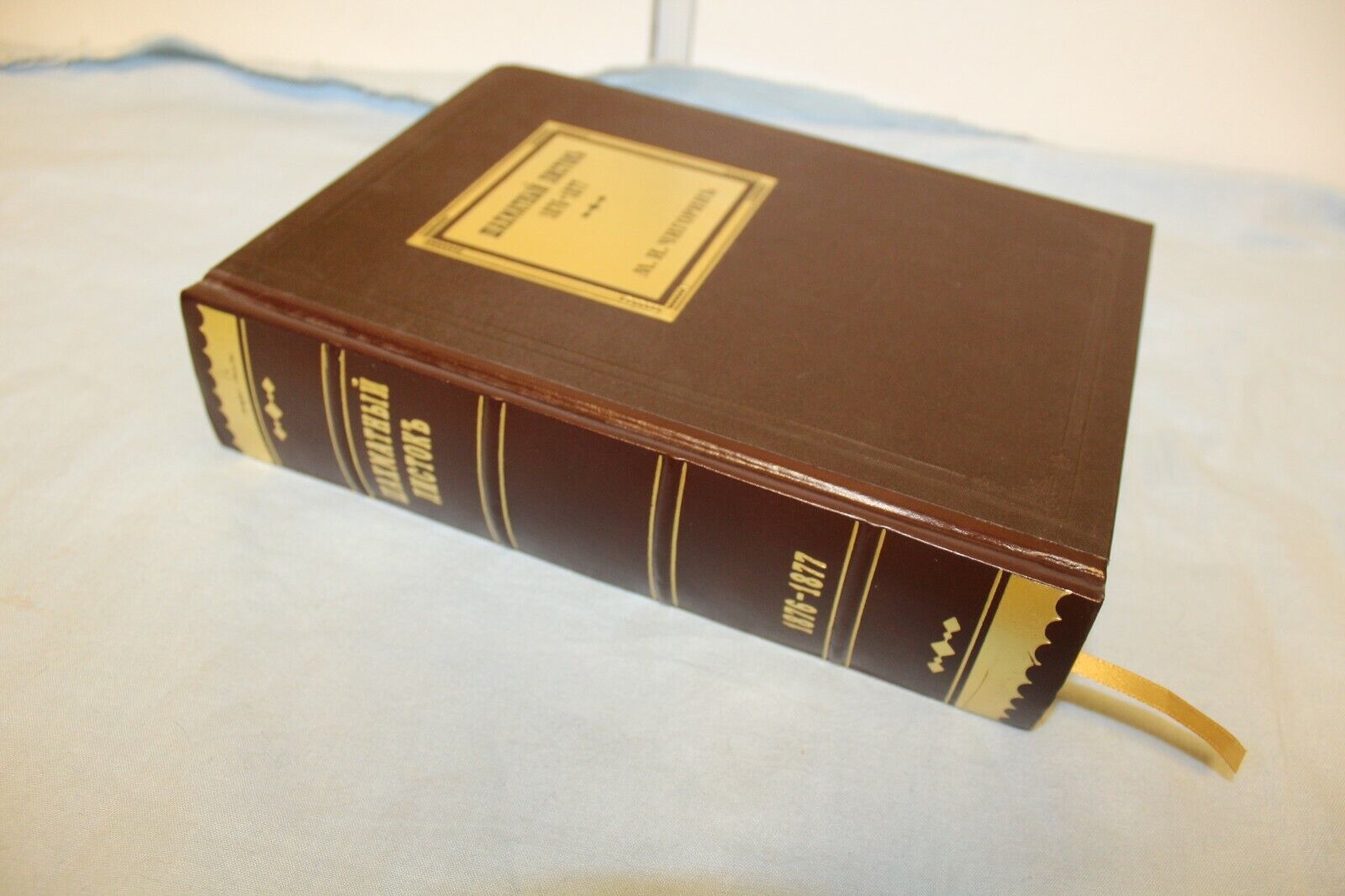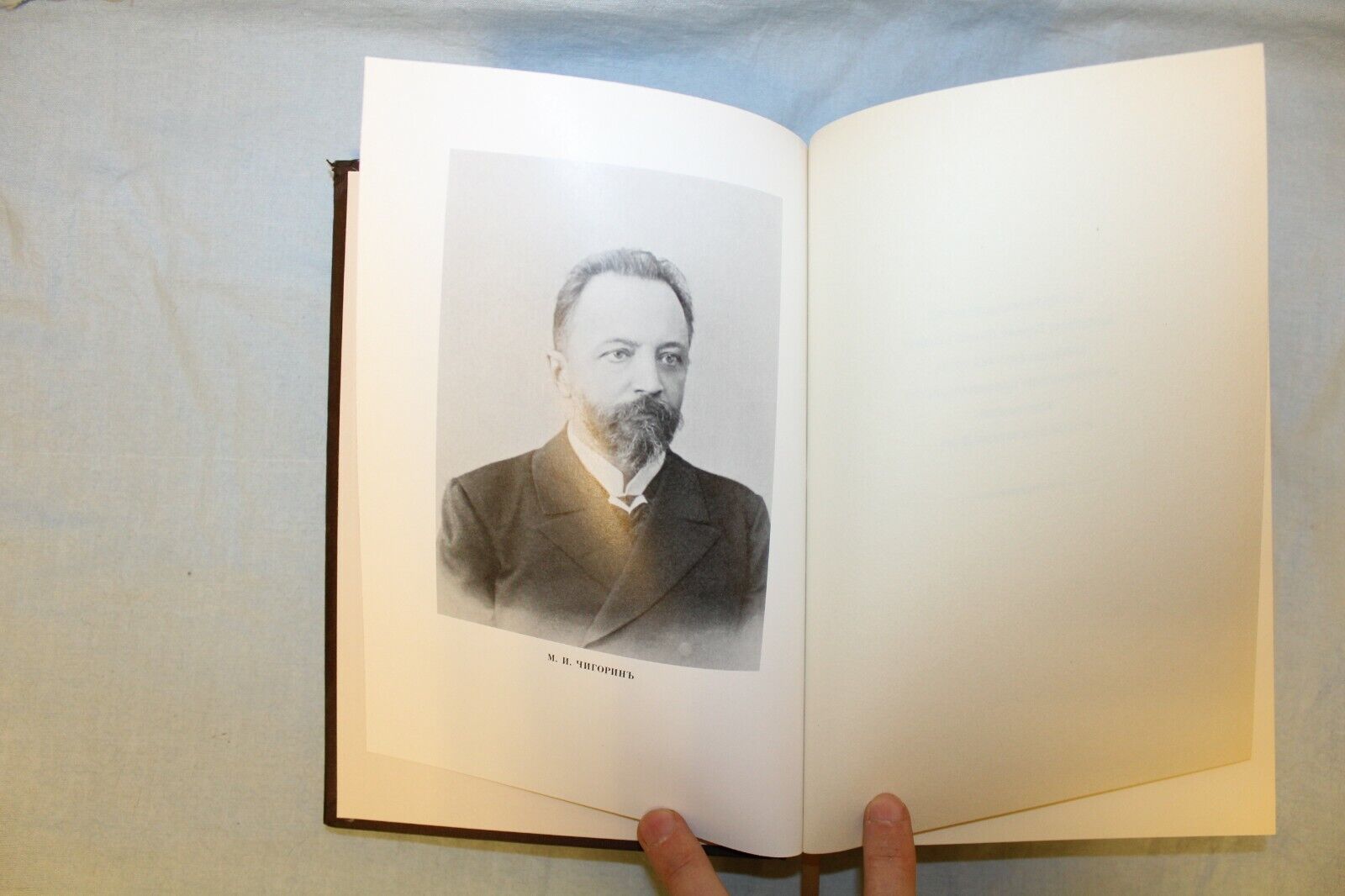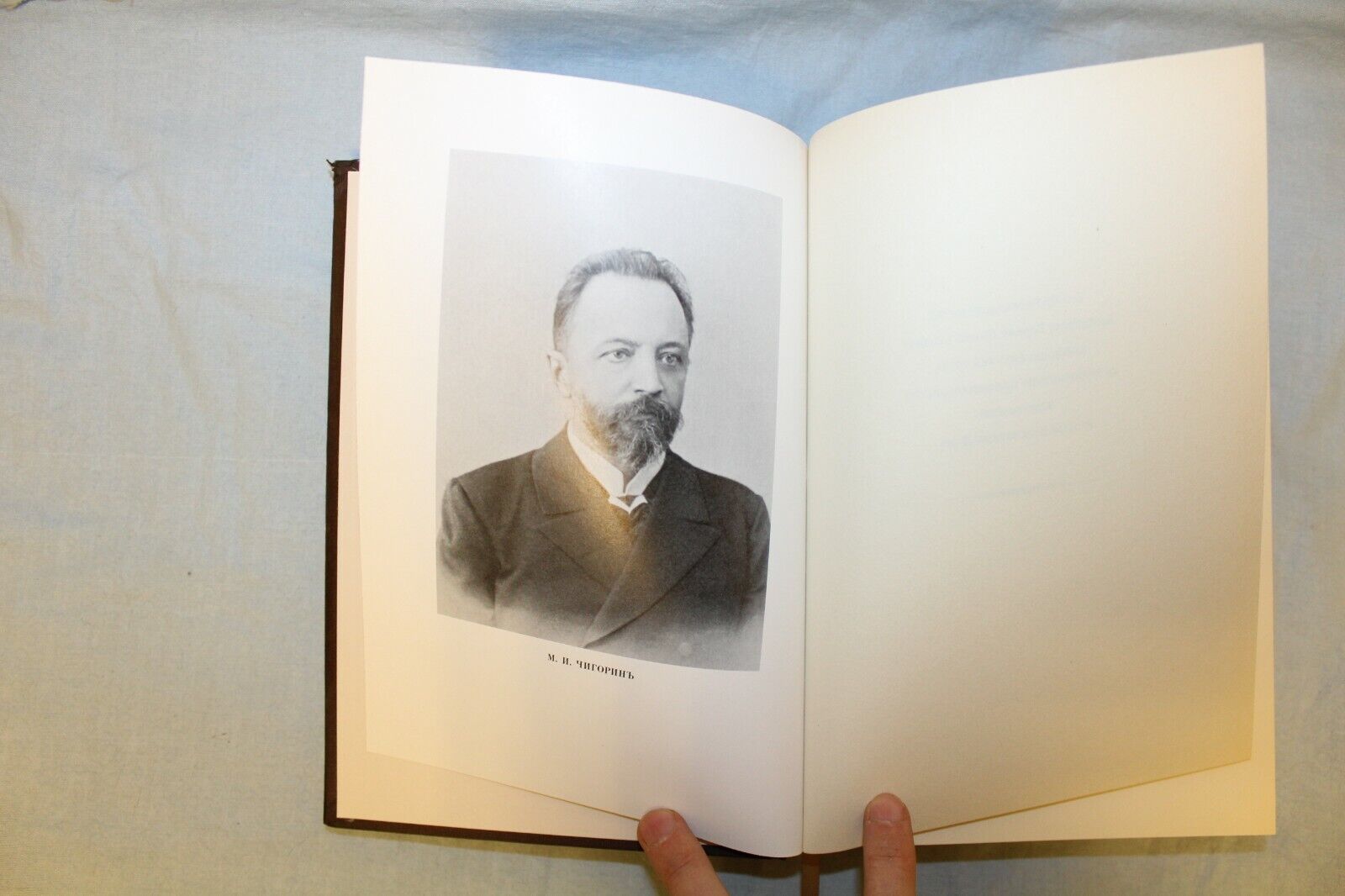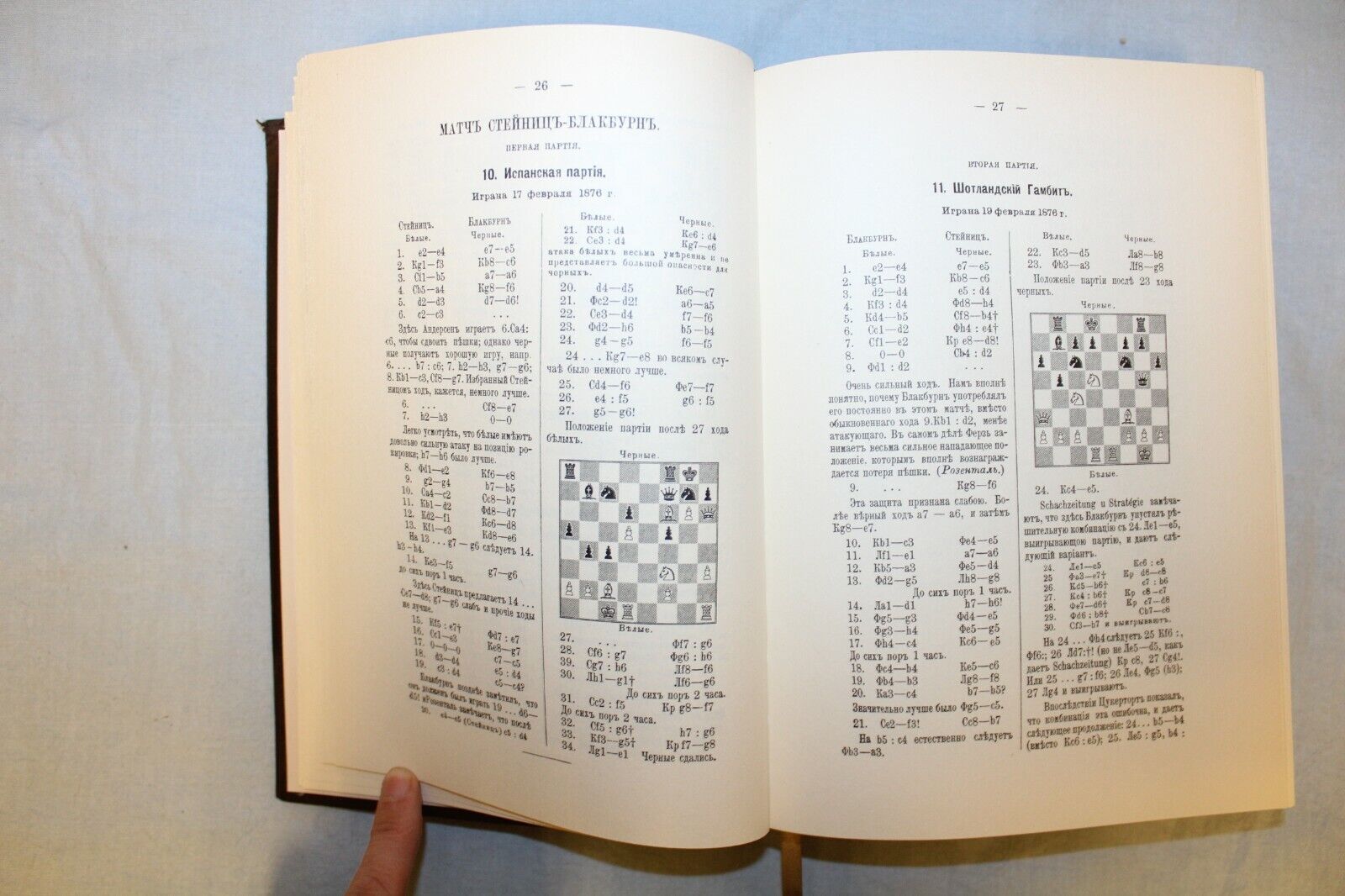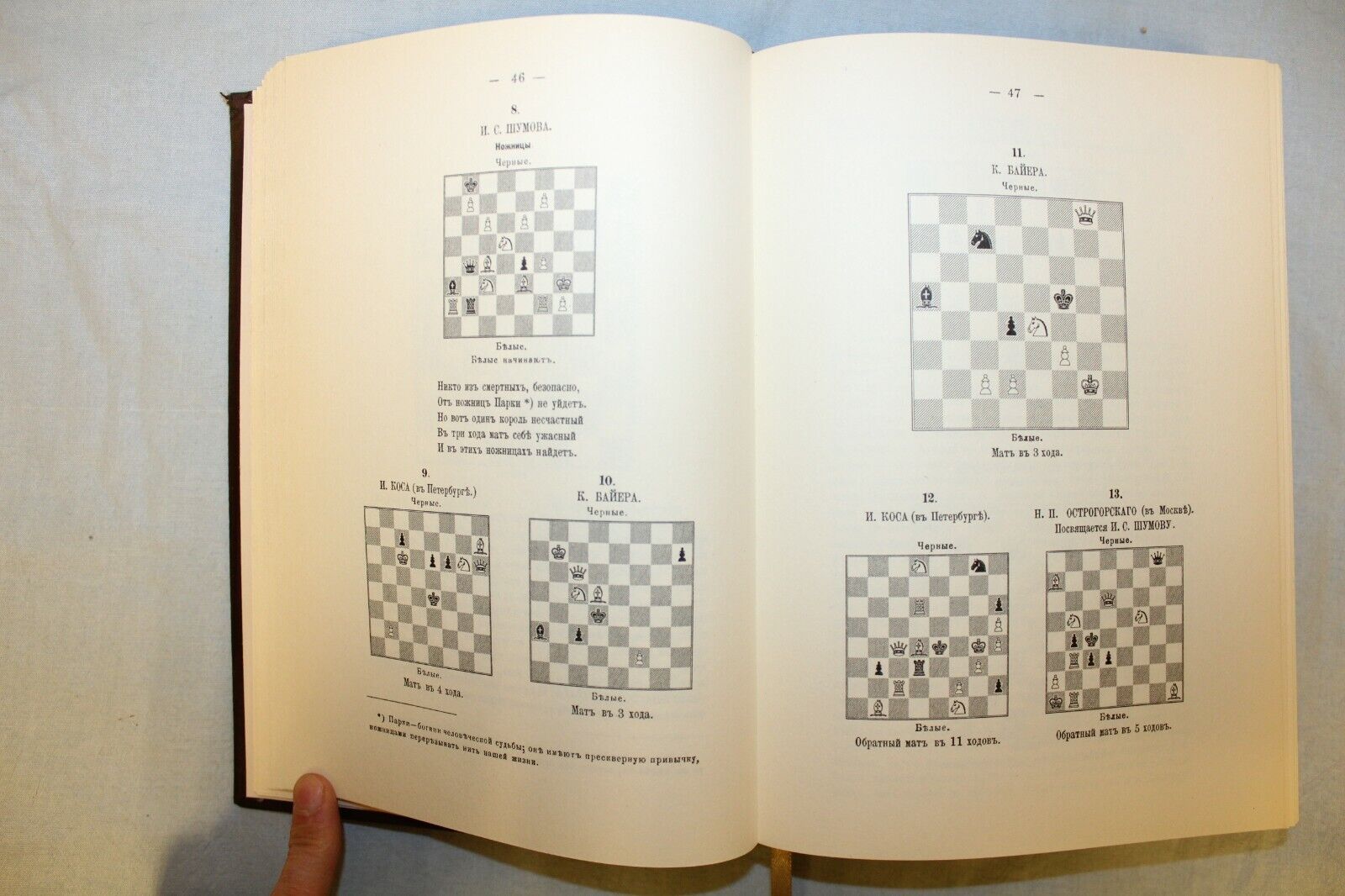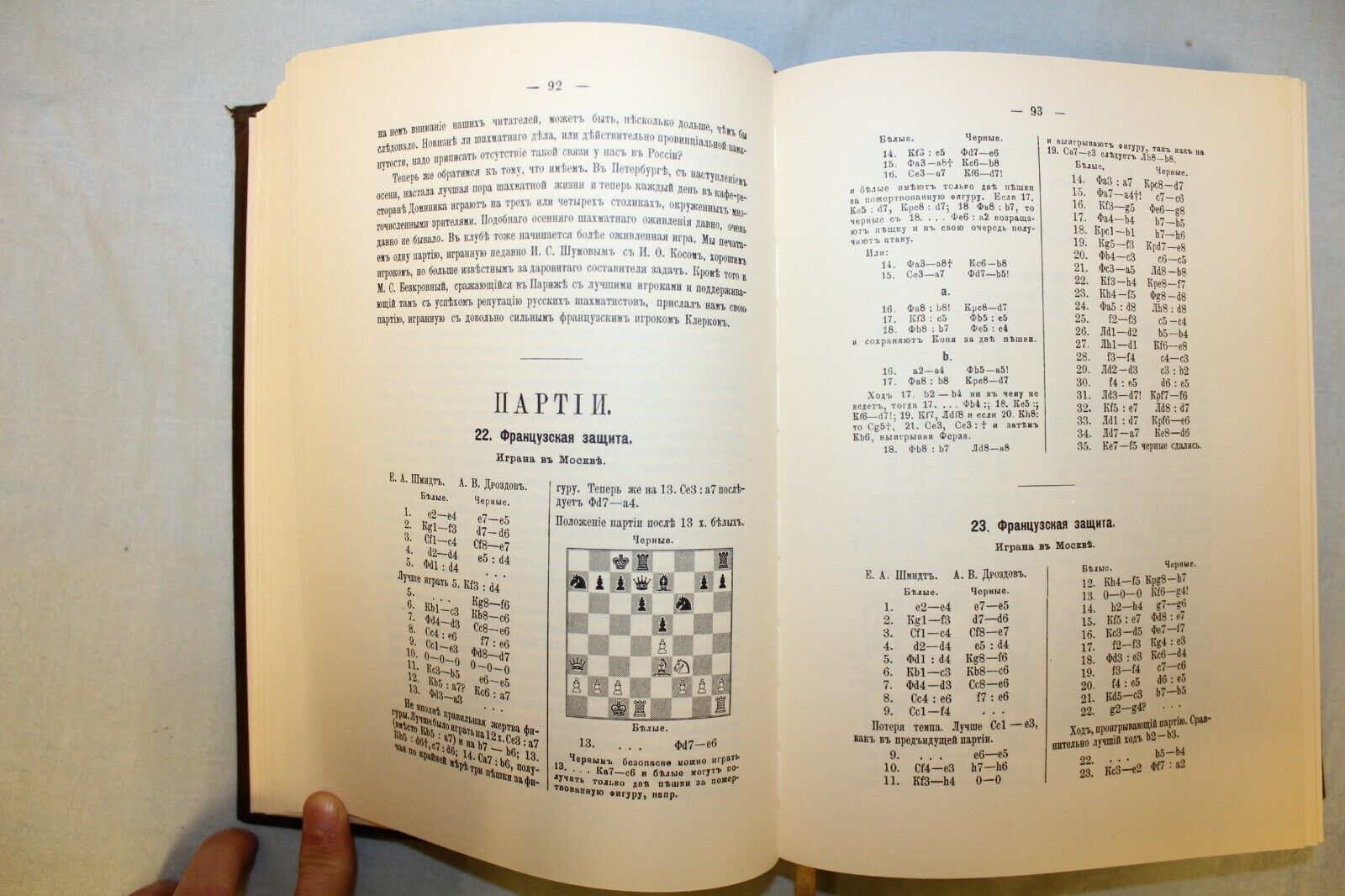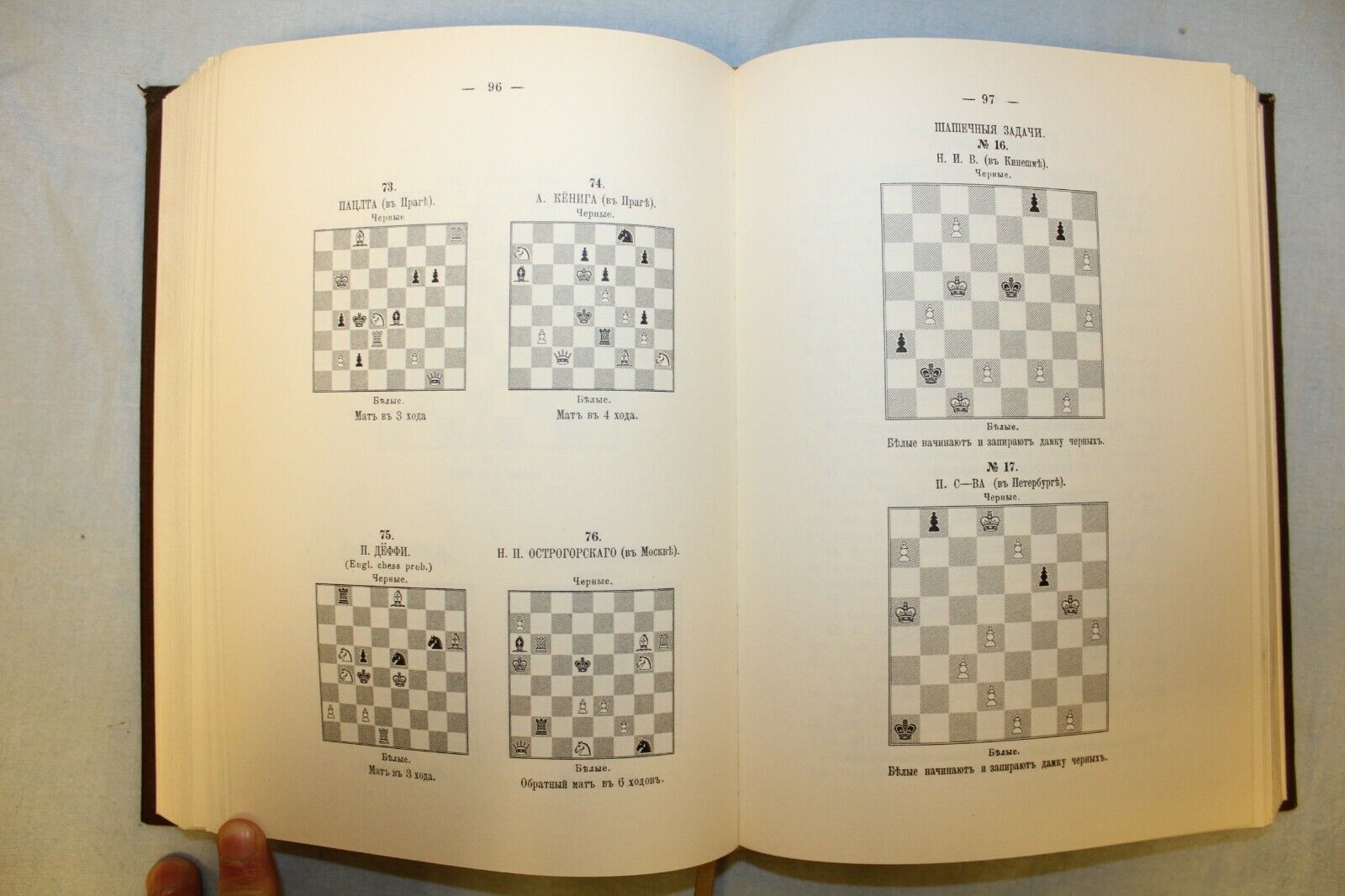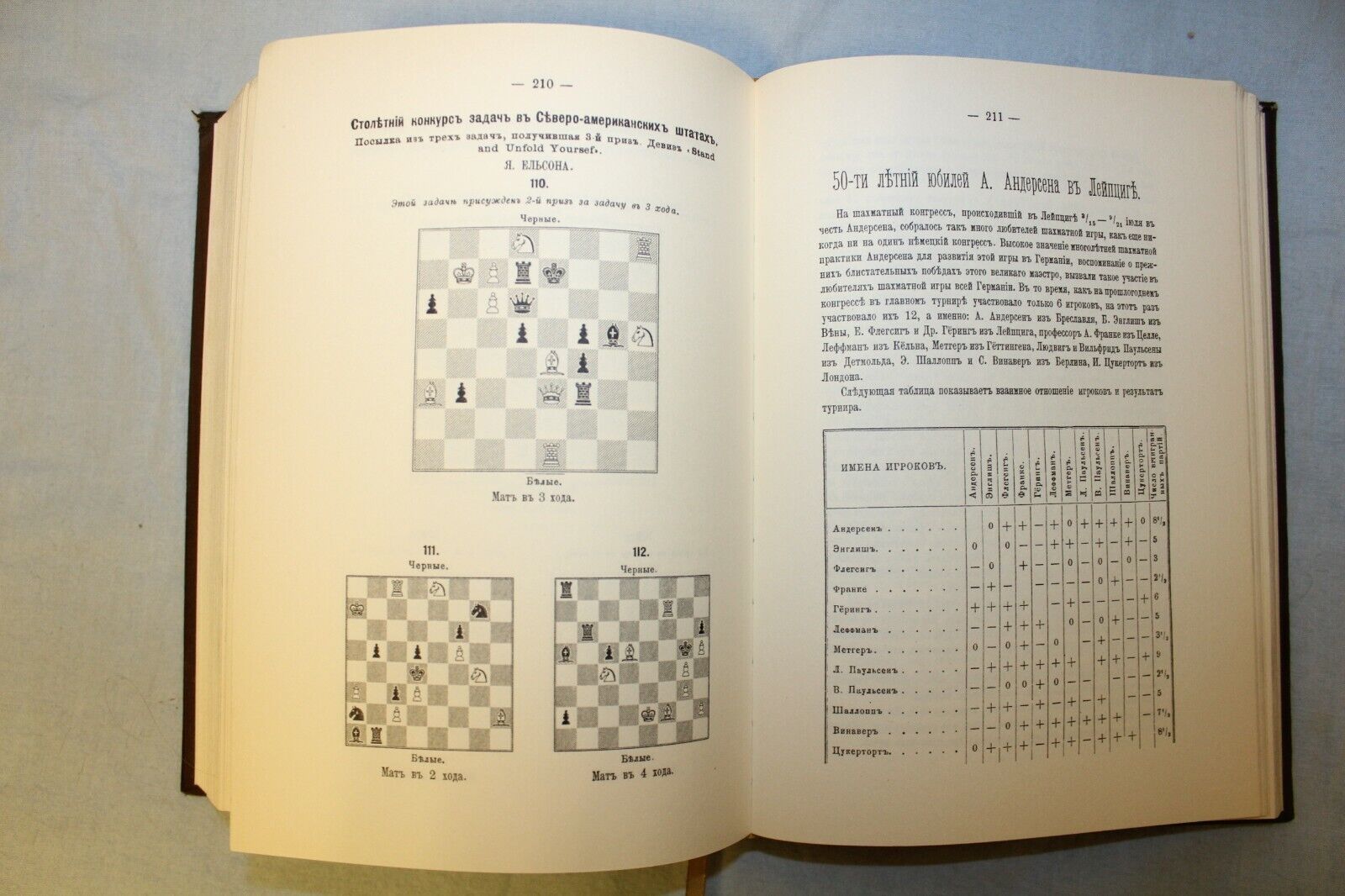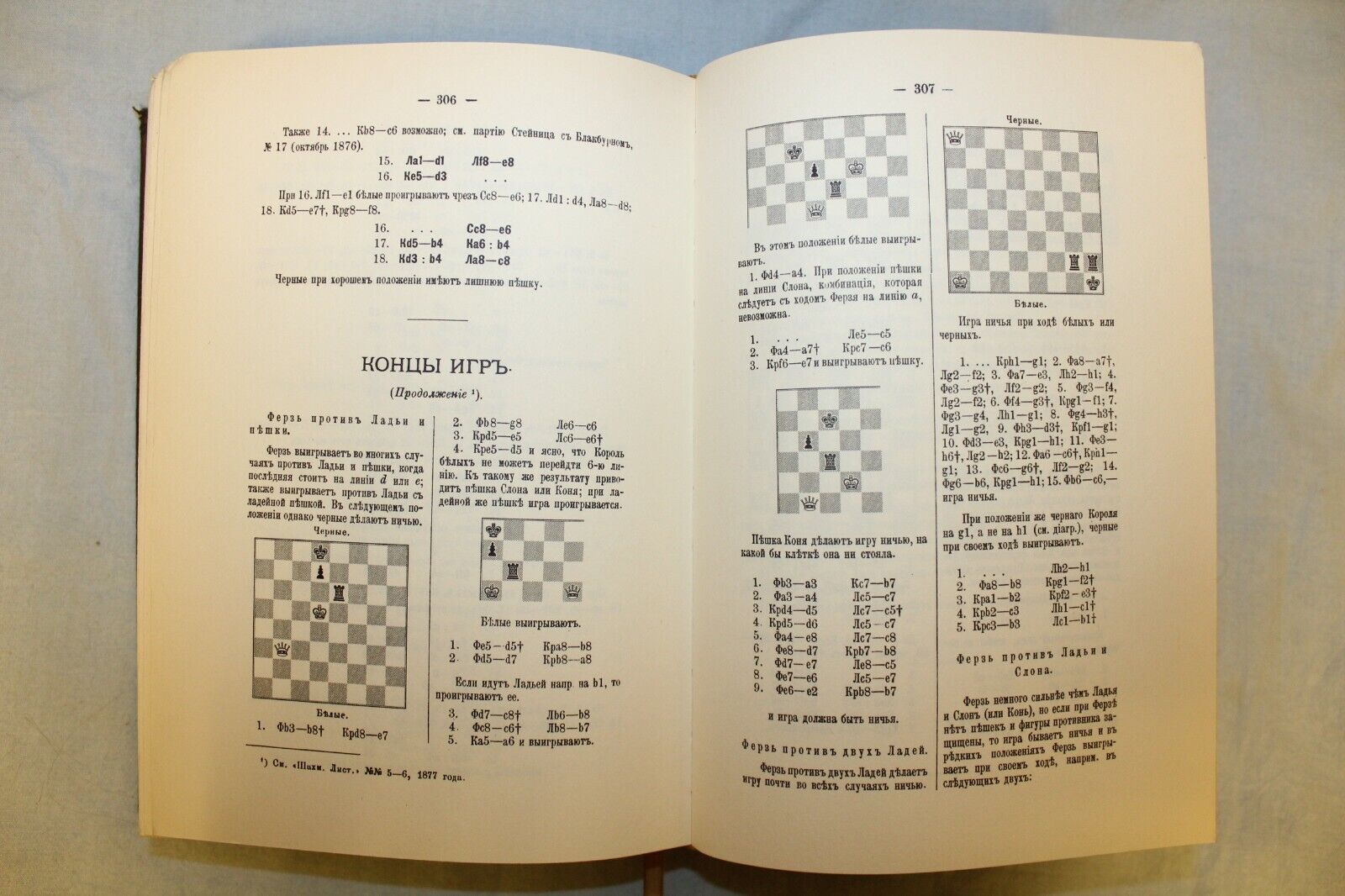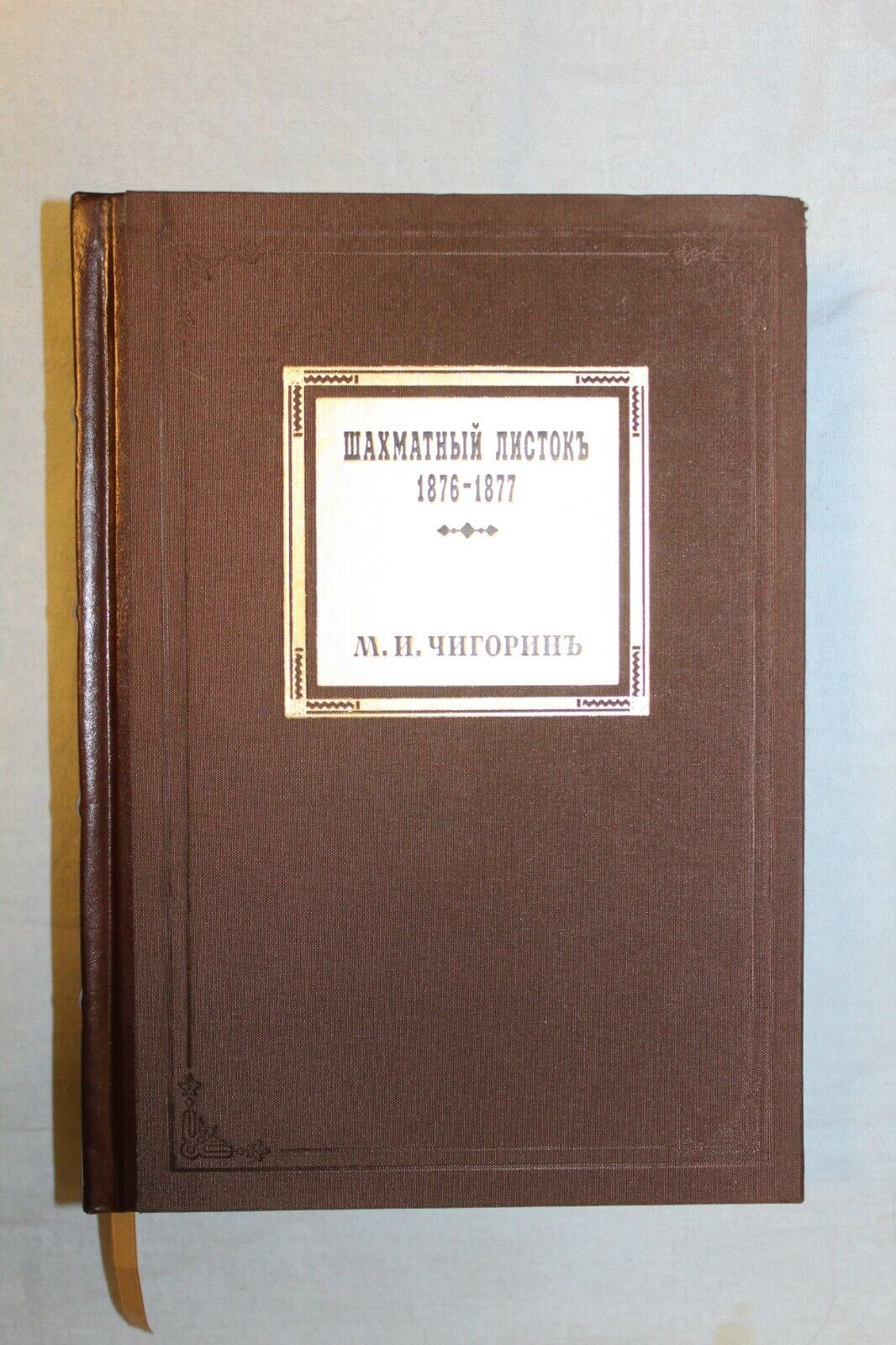Description:
A monthly magazine dedicated to the game of chess and its literature. Published By M. Chigorin 1876-1877. St. Petersburg, Russia. Printing House Of V. O. Demakov.
The great Russian chess player, the founder of the Russian chess school Mikhail Ivanovich Chigorin for ten years published the magnificent magazines "Chess leaf" (1876-1881) and "Chess Bulletin" (1885-1887). He was the main and sometimes the only author there. Needless to say, these most striking examples of Russian chess thought have long been virtually inaccessible to modern readers. Thanks to this work, it is possible to get acquainted with our priceless chess, historical and literary heritage.
"It is pleasant to note that the luxurious, elite performance of this three - volume edition has no analogues in the world chess literature, "writes multiple world champion Anatoly Karpov in" Word to the reader".
The first volume includes two years: 1876-1877.
WORD TO THE READER
"Chigorin is the founder of the Russian chess school, an outstanding theorist, and a contender for the world crown." How often we had to read and hear these words, which from frequent use were lost, began to seem an empty banality. Meanwhile, Mikhail Ivanovich Chigorin (1850-1908) was really the brightest creative personality. A gambling, fascinating person, he spared no effort and time to find the truth of chess, to solve the mysteries of an intricate opening or seemingly simple endgame position. In those early years, universality had not yet become a "vital necessity" in chess, and therefore every major master had a clearly defined individual style, with its own advantages and disadvantages. The Russian champion believed in the dynamic potential of figures, aspired to an open figure game, and willingly sacrificed material for initiative. His powerful opponent, Wilhelm Steinitz, put unshakable positional values above all else: the reliability of the pawn structure, the predominance in the center, the preponderance in space. Chigorin and Steinitz played two matches for the world championship, a lot of tournament and light games, but their fundamental dispute was not only at the chessboard. Polemically sharp, uncompromising discussions of these titans and their followers graced the pages of Newspapers and magazines of those years.
Chigorin passionately loved chess, and he was depressed by the lack of public interest in this wise game in our country. He wanted to prove that chess is not an empty sport; it can become a life's work, a real profession. To show chess in the most favorable light and attract the attention of an enlightened public, Chigorin for ten years published, mostly at his own expense, the magazines "Chess leaf" (1876-81) and "Chess Bulletin" (1885-87). He was the main and sometimes the only author there. Needless to say, these most striking examples of Russian chess thought have long since become a bibliographic rarity.
The modern reader is spoiled by an abundance of chess literature. However, without the historical aura that envelops the creative essence of the chess player, our inner world would be much poorer. The Russian chess house publishing house performs a real feat, giving everyone the opportunity to get acquainted with our priceless chess, historical and literary heritage. It is pleasant to note that the luxurious, elite performance of this four-volume edition has no analogues in the world chess literature.
Anatoly Karpov,
multiple world champion
The great Russian chess player, the founder of the national chess school Mikhail Ivanovich Chigorin for ten years published the magnificent magazines "Chess leaf" (1876-1881) and "Chess Bulletin" (1885-1887). He was the main and sometimes the only author there. Needless to say, these most striking examples of Russian chess thought have long been virtually inaccessible to modern readers. Thanks to this work, it is possible to get acquainted with our priceless chess, historical and literary heritage.
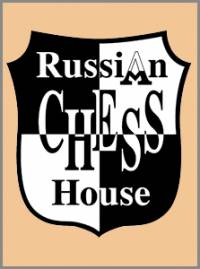 The life of a chess player in the system. Memories of the grandmaster
Author:
The life of a chess player in the system. Memories of the grandmaster
Author: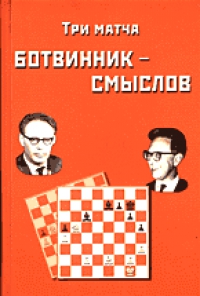 Три матча Ботвинник-Смыслов
Author:
Три матча Ботвинник-Смыслов
Author: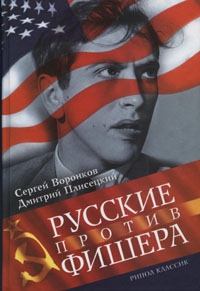 Russians vs Fisher
Author:
Russians vs Fisher
Author: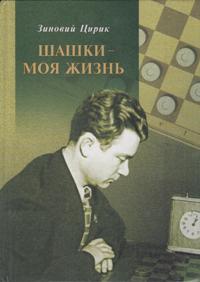 Checkers is my life
Author:
Checkers is my life
Author: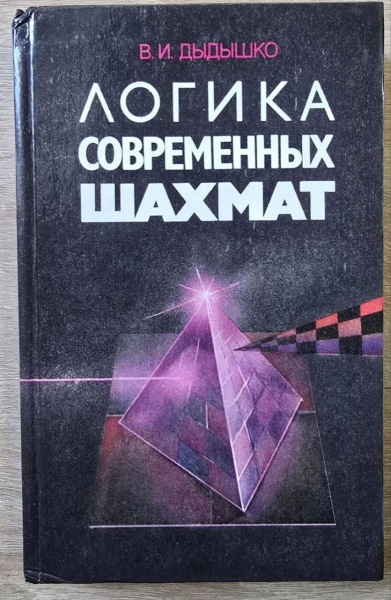 The logic of modern chess
Author:
The logic of modern chess
Author: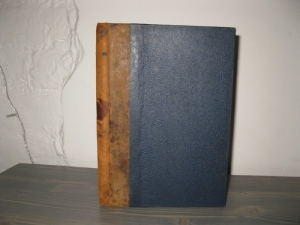 Siegbert Tarrasch. The Queen
Author:
Siegbert Tarrasch. The Queen
Author: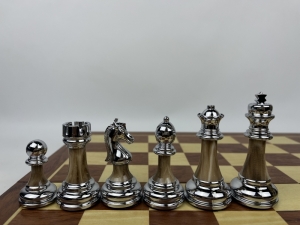 High quality acrylic metal heavy chess pieces with wooden board
202.50 $
High quality acrylic metal heavy chess pieces with wooden board
202.50 $
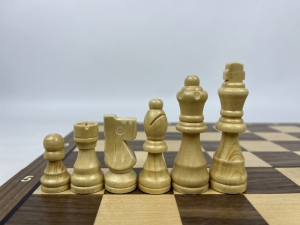 Wooden magnetic Staunton chess with a lock (silver)
56.25 $
Wooden magnetic Staunton chess with a lock (silver)
56.25 $
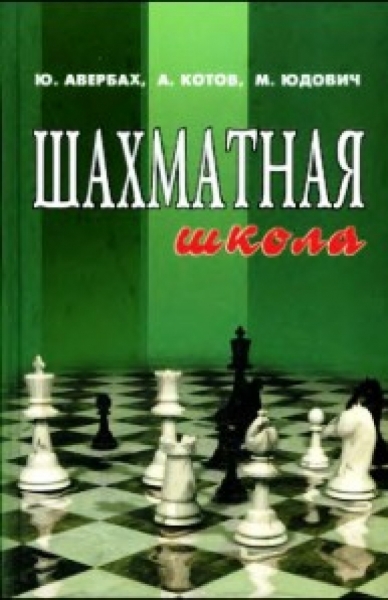 Chess school
Author:
Chess school
Author: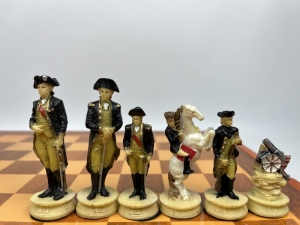 The chess set of The Chessmen. US war - Great Britain
325.00 $
The chess set of The Chessmen. US war - Great Britain
325.00 $
 Русский
Русский  Английский
Английский 